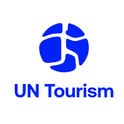UNWTO Completes Gastronomy Tourism Project for Ubud, Indonesia
UNWTO has concluded the Gastronomy Tourism Project, designed to make Ubud, Indonesia, a global hub of sustainable gastronomy tourism. Within the framework of Indonesia’s annual Tourism National Coordinative Meeting, the project’s final report was presented to the Minister of Tourism and Creative Economy, Sandiaga Uno, and to the Gianyar Regional Government.
The UNWTO Gastronomy Tourism Product Development Project in Ubud was developed with the Ministry of Tourism and Creative Economy with the aim of growing gastronomy tourism as a pillar of cultural and gastronomic heritage and boost the local economy, create jobs and drive sustainable and inclusive development. Launched in 2018, it was put on hold during the pandemic, returning at the start of this year. The project was divided into three phases:
- Phase 1: Analysis and diagnosis: inventory and evaluation of gastronomy resources, analysis of demand indicators, market study, online positioning and influencers in gastronomy tourism
- Phase 2: Technical design: conformation of the development of the Gastronomy Tourism experience in Ubud, including governance, communication and positioning models
- Phase 3: Development of the business plan: definition of indicators for measuring the impact and the outcomes of the project, design and format of the gastronomy experiences, business model and a communication plan for key source markets
As part of the project final visit, the Ministry of Tourism and Creative Economy will host a workshop for local stakeholders from both the public and private sectors in Ubud to discuss the outcomes of the project. The workshop will welcome participants from regional and local Destination Management Organizations, as well as representatives of gastronomy-related businesses and academia, to discuss an action plan and the way forward to turn Ubud into a global hub of sustainable and authentic community-based gastronomic experiences. The workshop will also focus on the next steps, such as the creation of a Gastronomy Tourism Club to support a structured governance model.
RELATED LINKS:
About UN Tourism
The World Tourism Organization (UN Tourism) is the United Nations agency responsible for the promotion of responsible, sustainable and universally accessible tourism.
As the leading international organization in the field of tourism, UN Tourism promotes tourism as a driver of economic growth, inclusive development and environmental sustainability and offers leadership and support to the sector in advancing knowledge and tourism policies worldwide.
Our Priorities
Mainstreaming tourism in the global agenda: Advocating the value of tourism as a driver of socio-economic growth and development, its inclusion as a priority in national and international policies and the need to create a level playing field for the sector to develop and prosper.
Promoting sustainable tourism development: Supporting sustainable tourism policies and practices: policies which make optimal use of environmental resources, respect the socio-cultural authenticity of host communities and provide socio-economic benefits for all.
Fostering knowledge, education and capacity building: Supporting countries to assess and address their needs in education and training, as well as providing networks for knowledge creation and exchange.
Improving tourism competitiveness: Improving UN Tourism Members' competitiveness through knowledge creation and exchange, human resources development and the promotion of excellence in areas such as policy planning, statistics and market trends, sustainable tourism development, marketing and promotion, product development and risk and crisis management.
Advancing tourism's contribution to poverty reduction and development: Maximizing the contribution of tourism to poverty reduction and achieving the SDGs by making tourism work as a tool for development and promoting the inclusion of tourism in the development agenda.
Building partnerships: Engaging with the private sector, regional and local tourism organizations, academia and research institutions, civil society and the UN system to build a more sustainable, responsible and competitive tourism sector.
Our Structure
Members: An intergovernmental organization, UN Tourism has 160 Member States, 6 Associate Members, 2 Observers and over 500 Affiliate Members.
Organs: The General Assembly is the supreme organ of the Organization. The Executive Council take all measures, in consultation with the Secretary-General, for the implementation of the decisions and recommendations of the General Assembly and reports to the Assembly.
Secretariat: UN Tourism headquarters are based in Madrid, Spain. The Secretariat is led by the Secretary-General and organized into departments covering issues such as sustainability, education, tourism trends and marketing, sustainable development, statistics and the Tourism Satellite Account (TSA), destination management, ethics and risk and crisis management. The Technical Cooperation and Silk Road Department carries out development projects in over 100 countries worldwide, while the Regional Departments for Africa, the Americas, Asia and the Pacific, Europe and the Middle East serve as the link between UN Tourism and its 160 Member States. The Affiliate Members Department represents UN Tourism's 500 plus Affiliate members.
UN Tourism Communications Department
+34 91 567 8100
UN Tourism
